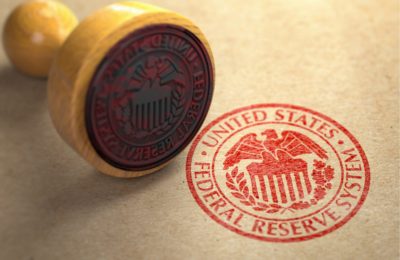What the Fed Can’t Do
The American economy is still in the doldrums. It is growing and creating jobs at a snail’s pace compared to the years before the financial crisis. There are several reasons for this. But the actions of the Federal Reserve bear significant blame. For now, the public’s anger at the Fed’s questionable activities during and after the crisis have died down somewhat. After the 2016 election, more people are focusing on taxes, infrastructure spending, international trade and immigration. These are important issues, but there is no reason to let the Fed off the hook. The actions of the Fed for almost a decade now have been a drag on economic performance. Importantly, this is not just because of particular policies chosen by the Fed. The problem is not what the Fed does, but what the Fed is.
Simply put, the Fed cannot know enough to do what we want it to do. Most economists want the Fed to act as a kind of macroeconomic steward, easing monetary conditions when inflation is low and unemployment is high, and tightening monetary conditions when inflation is high and unemployment is low. But this mechanistic approach to the economy is dangerously misguided. The economy is not a machine; the Fed is not in a position to be pulling levers. If we must use a metaphor to describe the economy, we should call it an ecosystem: an unfathomably complex set of interrelationships that, even though they can be studied using a few simple rules and guidelines, cannot be controlled.
Monetary policy is supposedly an engineering problem. But in reality, it is an economic problem. How do we find out whether monetary conditions are appropriate to the needs of trade? If monetary conditions are not appropriate to the needs of trade, how do we discover where we are relative to what we ought to be? The ordinary answer to these questions is to allow the discovery mechanisms of the market to guide consumers and producers to a mutually agreed upon solution. Historically, this can and was done with money. Once upon a time, money was privately produced by banks in the course of performing financial intermediation. While the monetary base, frequently gold or silver, could not be created or destroyed easily, the public’s demand for bank liabilities redeemable in gold or silver could. Profit maximizing banks thus ensured that the economic system never for long had to put up with either an excess demand for, or supply of, money. In countries where, during some periods, this was allowed to work, such as Scotland, Canada, and Sweden, the result was little financial turbulence and macroeconomic stability. In countries where misguided legislation prevented it from working, such as the United States, the result was regular financial crunches and macroeconomic bedlam.
The Fed was supposed to solve the problems of periodic financial and macroeconomic turbulence. When created in 1913, the Fed was intended to help facilitate national liquidity transfers and provide for an elastic currency to combat bank crises. Instead, gradually acquiring the ability to conduct discretionary monetary policy, it has become an agent of economic malaise. By its constitution the Fed is a top-down organization, incapable of acquiring the knowledge necessary for keeping the macroeconomy healthy. At best, it can do what a private monetary system could do on its own. At worst, it throws a wrench in an economy’s monetary and financial intermediation sectors, which necessarily spreads to other sectors as well.
Undoubtedly the Fed will continue to change its interest rate targets and adjust its asset purchases as it sees fit. It will do very little to give the economy the shot in the arm it needs. By its very nature, discretionary monetary policy cannot cope with the complexities of money and financial markets. If we want to remove the wrench the Fed perpetually thrusts into the gears of the economy, it’s time to explore market-based solutions to monetary and macroeconomic problems.








